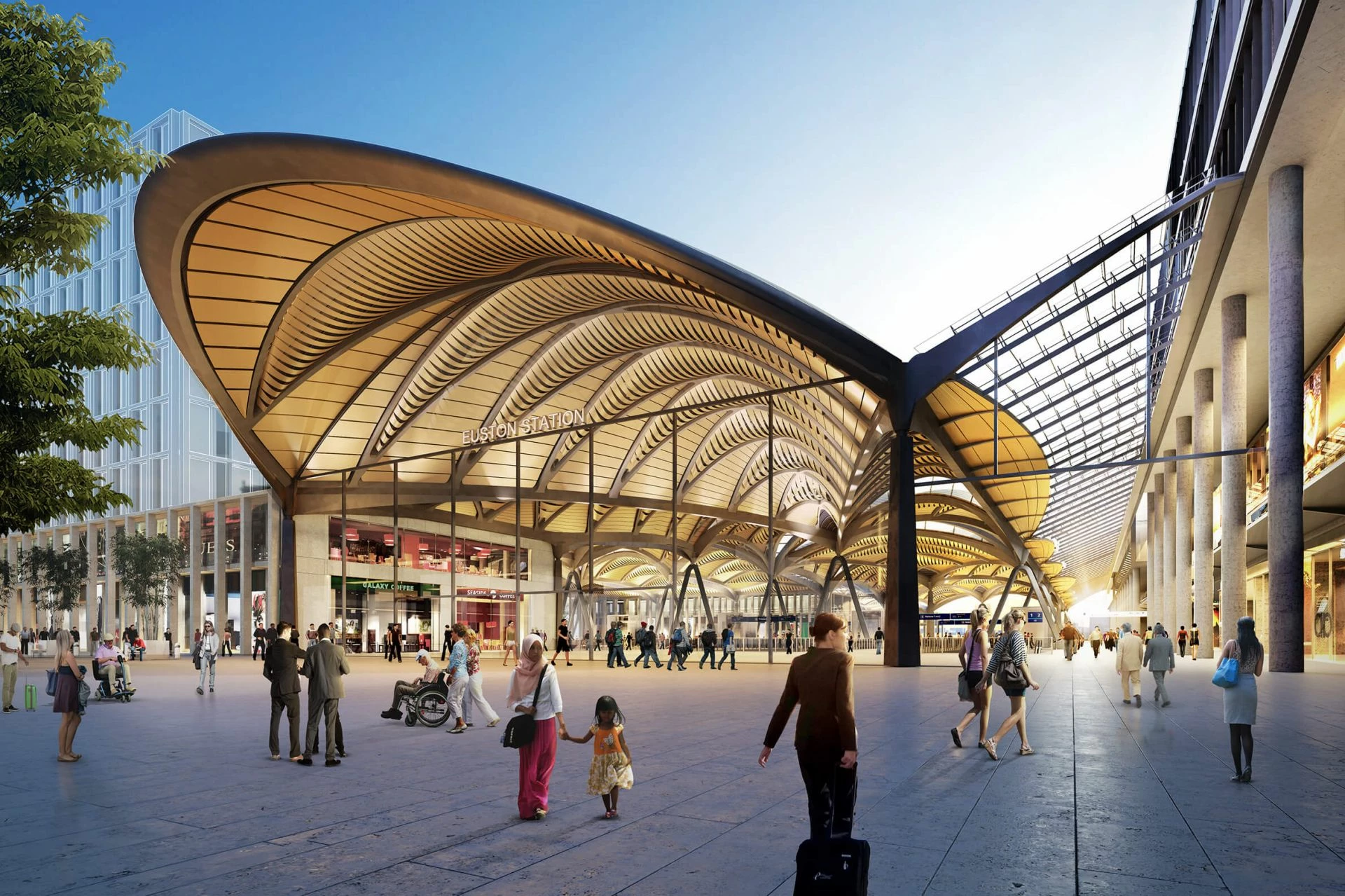
Partner Article
Bidding begins for HS2 work as figures show new stations set to become major business hubs
The bidding process for London’s two new High Speed 2 (HS2) railway stations is to begin with contracts set to be awarded by next Autumn.
According to Construction Enquirer, HS2 Ltd has shortlisted four contractors to bid for the redevelopment work at London Euston and Old Oak Commons with a proposed timetable that will see contracts for almost £3bn-worth of work awarded by next Autumn.
The work, which is expected to create over 4,000 jobs, will see two separate contractors awarded the work on each station, with Euston alone set to be worth £1.65bn.
The news comes as new figures from business information company DueDil has shown that stations along the recently approved HS2 railway line are set to become major business hubs once operational.
Mining their own data for the figures, DueDil ranked the financial performance of companies within a ten mile radius of each HS2 station and found that businesses from London Euston all the way up to Lancaster and York boasted a combined £1.6trn turnover.
Rather predictably, the two stations in the capital dominate the figures representing over £1.3trn of the total amount with Euston alone accounting for £1.2trn.
Elsewhere, the Birmingham Curzon Street station saw its concentration of businesses turning over £35.6bn while regional hubs including Manchester Piccadilly (£36.8bn) and Leeds (£50bn) also performed well.
The figures outline both the relatively even spread of economic contribution from businesses outside of London and the potential benefits the new high speed line provides in linking pre-existing business hubs around the country.
DueDil’s co-founder and chief executive Damian Kimmelman believes that by ‘physically linking’ the country’s economic centres the UK will enjoy a more connected economy.
He added: “While London naturally has the highest concentration of businesses and flow of money, our analysis shows that private companies outside the capital are also contributing significant amounts to our economy.”
Looking to promote your product/service to SME businesses in your region? Find out how Bdaily can help →
Enjoy the read? Get Bdaily delivered.
Sign up to receive our popular morning London email for free.








 Raising the bar to boost North East growth
Raising the bar to boost North East growth
 Navigating the messy middle of business growth
Navigating the messy middle of business growth
 We must make it easier to hire young people
We must make it easier to hire young people
 Why community-based care is key to NHS' future
Why community-based care is key to NHS' future
 Culture, confidence and creativity in the North East
Culture, confidence and creativity in the North East
 Putting in the groundwork to boost skills
Putting in the groundwork to boost skills
 £100,000 milestone drives forward STEM work
£100,000 milestone drives forward STEM work
 Restoring confidence for the economic road ahead
Restoring confidence for the economic road ahead
 Ready to scale? Buy-and-build offers opportunity
Ready to scale? Buy-and-build offers opportunity
 When will our regional economy grow?
When will our regional economy grow?
 Creating a thriving North East construction sector
Creating a thriving North East construction sector
 Why investors are still backing the North East
Why investors are still backing the North East